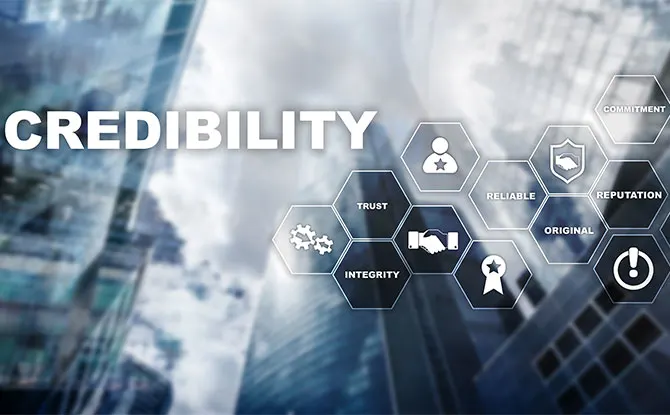I have interviewed numerous leaders across industries and have observed a common trait among the most effective ones: integrity. Integrity in leadership means staying true to your values, being transparent and honest, and doing what is right, even when it may be difficult.
Leaders who prioritize integrity are trustworthy and inspire their teams to follow suit. They create a culture of ethical behavior and accountability.
In this article, I will delve deeper into the concept of integrity in leadership, explore its impact on success, and provide practical tips for leaders to foster integrity within their organizations.
Key Takeaways
- Integrity in leadership is crucial for effective management.
- Integrity means staying true to your values and being transparent.
- Leaders who prioritize integrity create a culture of ethical behavior.
Understanding Integrity in Leadership

Integrity is a fundamental quality of trustworthy and honest leaders. It encompasses a range of attributes, including honesty, transparency, consistency, and accountability. As a leader, possessing integrity means adhering to high moral and ethical principles, and being true to oneself and others.
In the context of leadership, integrity is characterized by actions that align with values and beliefs, regardless of the situation or circumstances. It involves making difficult decisions based on ethical principles and taking responsibility for the consequences of those decisions.
A trustworthy leader is one who can be relied upon to act with integrity in all situations, regardless of whether or not it is the easiest or most convenient choice. Such leaders are honest, transparent, and consistent in their actions, and they foster a sense of trust and respect among their teams.
Examples of Trustworthy and Honest Leadership
Consider the case of Ursula Burns, the former CEO of Xerox. Burns was renowned for her principled leadership and unwavering dedication to maintaining integrity throughout the organization. When faced with tough ethical dilemmas, she consistently chose the path of transparency and honesty, even when it was not the easiest or most popular choice.
Another example is that of Howard Schultz, the founder and former CEO of Starbucks. Schultz was instrumental in transforming Starbucks into a global powerhouse, and his leadership style emphasized the importance of ethical decision-making. He famously declared that he would rather lose a sale than compromise on the company’s values, highlighting his strong commitment to integrity and principled leadership.
These examples demonstrate the importance of integrity in leadership and how it can contribute to success.
The Relationship Between Integrity and Success

Integrity in leadership is not only a moral obligation, but it is also vital to achieving long-term success. Leaders who prioritize integrity create a positive organizational culture where employees are more engaged, productive, and loyal. When leaders lead with integrity, they gain the trust and respect of their team members, customers, and stakeholders.
Principled leadership is about doing the right thing, even if it is not the easiest or most popular choice.
Leaders who uphold ethical standards are more likely to make decisions that benefit the organization in the long run. This includes prioritizing the well-being of all stakeholders, including employees, customers, and the community.
Research has repeatedly shown that ethical leadership is positively associated with employee job satisfaction, commitment, and performance. By fostering an environment of trust and transparency, leaders can inspire their employees to emulate ethical behavior, leading to increased productivity and improved organizational outcomes.
Examples of successful leaders who have demonstrated integrity abound. Warren Buffett, known for his ethical investing principles, is widely regarded as one of the most successful investors in history. Similarly, Elon Musk, the CEO of Tesla, has been praised for his transparency and integrity, even in the face of controversy.
In conclusion, integrity is not only a moral imperative, but it is also key to effective leadership and sustained organizational success. Leaders who prioritize integrity create a culture of trust and transparency that fosters engagement, productivity, and loyalty in their employees. By modeling ethical behavior and making decisions that prioritize all stakeholders’ well-being, leaders can inspire their teams to achieve great things.
The Role of Values-Based Leadership
Leaders who prioritize integrity often have a clear understanding of their values. They know what they stand for and use this knowledge to guide their decisions and actions. Values-based leadership is about aligning one’s values with their leadership practices. It is about being transparent and authentic, and setting an example for others to follow.
By leading with values, leaders foster trust and transparency within their organizations. They create a culture where ethical behavior is valued and rewarded.
When team members see their leaders aligning their actions with their values, they are more likely to do the same. This can lead to a more cohesive and productive team.
To incorporate values-based leadership into your management approach, start by identifying your own core values. Ask yourself what matters most to you and how you can align your actions with those values. Then, communicate your values clearly to your team members. This can be done through regular staff meetings, team building exercises, or even one-on-one conversations.
| Tip: | Consider creating a code of ethics for your organization. This can serve as a set of guiding principles for your team, and help to ensure that everyone is on the same page when it comes to ethical behavior. |
|---|
Another way to incorporate values-based leadership is to lead by example. When you encounter ethical dilemmas, make decisions that are in line with your values, even if they are not the easiest or most popular choices. By doing so, you show your team members that you value integrity above all else.
Remember, values-based leadership is not just about doing the right thing – it’s about doing the right thing for the right reasons. When your actions are driven by your core values, you are more likely to make ethical decisions that benefit both your team and your organization as a whole.
Building Trust Through Transparency
Transparency is an essential component of leadership integrity. When leaders communicate openly and honestly, they build trust and create a culture of integrity within their organizations. By being transparent, leaders can foster a sense of accountability and encourage their teams to act with honesty and integrity. Here are some strategies to enhance transparency in your organization:
- Lead by example. As a leader, make sure you model the behavior you want to see in your team. Be honest and open in your communications and hold yourself to the same standards you expect of others.
- Encourage a culture of openness. Create an environment where your team members feel comfortable sharing their thoughts and opinions. Encourage feedback and listen to your team’s ideas. Make sure everyone feels respected and valued.
- Be honest about mistakes. When something goes wrong, be transparent about what happened and take responsibility for any mistakes. This will help build credibility and trust with your team.
- Communicate your vision. Make sure your team understands your goals and objectives. Share information about the company’s direction and strategy. This will help everyone understand the organization’s priorities and work together to achieve its goals.
By building trust through transparency, leaders can create a culture of integrity within their organizations. When employees feel they can trust their leaders, they are more likely to act with honesty and integrity themselves. This can lead to improved performance, increased productivity, and better outcomes for the organization as a whole.
Nurturing a Culture of Integrity

As leaders, it is our responsibility to foster a culture of integrity within our organizations. One of the most effective ways to achieve this is through principled leadership. When we align our actions with our values, and model ethical behavior for our teams, we create a work environment where integrity is valued and upheld.
But how do we promote ethical leadership at all levels of the organization? First, we need to communicate our expectations clearly and consistently. By setting a tone of transparency and honesty, we encourage our team members to act with integrity as well. We can also provide training and resources to help employees understand ethical dilemmas and make principled decisions.
Another key factor in nurturing a culture of integrity is recognizing and rewarding ethical behavior. When we publicly acknowledge employees who demonstrate honesty and trustworthiness, we reinforce the importance of these values. Conversely, when we turn a blind eye to unethical behavior or fail to hold people accountable, we send a message that integrity is not a priority.
Finally, we must continually strive to improve our own leadership integrity. This means being willing to admit our mistakes, seeking feedback from others, and staying true to our values even in challenging situations. When leaders model integrity, we inspire our teams to do the same.
Overcoming Challenges to Integrity
As leaders, we may face ethical dilemmas that challenge our commitment to integrity. These challenges can come in the form of pressure to compromise our values or difficult decisions that require us to weigh the interests of different stakeholders.
One common challenge is the temptation to prioritize short-term gains over long-term sustainability. In these situations, we must resist the urge to cut corners or make compromises that go against our principles. Instead, we must stay focused on the bigger picture and make decisions that align with our values and the interests of our stakeholders.
Another challenge is dealing with conflicts of interest. As leaders, we must be transparent about our relationships and avoid making decisions that benefit ourselves at the expense of others. In cases where conflicts of interest arise, we must disclose them and take steps to ensure that our decisions are fair and impartial.
Finally, we may face pressure to ignore or conceal unethical behavior within our organizations. In these situations, we must have the courage to speak up and address the issue directly. We must ensure that our organization operates with integrity and that we hold ourselves and our team members accountable for upholding ethical standards.
To overcome these challenges, it is essential that we stay true to our values and prioritize ethics in our decision-making. We must also seek out advice and support from trusted mentors and colleagues who share our commitment to integrity. By doing so, we can navigate these challenges with confidence and lead our organizations with integrity and purpose.
Leading with Integrity: Case Studies
Examining real-world examples of leaders who have demonstrated integrity and achieved success can be a valuable way to understand the impact of ethical leadership practices. Two such case studies are discussed below.
Indra Nooyi, Former CEO of PepsiCo
Indra Nooyi led PepsiCo as its CEO for 12 years, during which time she prioritized integrity and ethical leadership. She emphasized the importance of long-term sustainability and implemented environmentally-friendly initiatives to reduce the company’s carbon footprint. Under her leadership, PepsiCo focused on promoting healthy food options and reducing its reliance on sugary drinks. Nooyi was also vocal about the need for diversity and equality in the workplace, launching initiatives to support women and minority employees.
Nooyi’s principled leadership not only resulted in PepsiCo’s financial success, but it also created a positive organizational culture. The company consistently ranked highly in employee satisfaction surveys and was recognized for its commitment to social responsibility.
Alan Mulally, Former CEO of Ford Motor Company
When Alan Mulally became the CEO of Ford Motor Company in 2006, he inherited a struggling company in need of a major turnaround. Mulally used his principles of leadership and integrity to guide Ford through a period of change and success. He emphasized a culture of transparency and accountability, urging employees to be open and honest about their challenges and mistakes. Mulally also prioritized innovation and taking risks, encouraging Ford to invest in new technologies and products.
Under Mulally’s leadership, Ford not only regained profitability but also regained its reputation as a leading American auto manufacturer. His integrity and ethical leadership practices played a crucial role in the company’s success, creating a positive impact on its employees, customers, and stakeholders.
The Ripple Effect of Leadership Integrity
Leaders who prioritize integrity create a ripple effect within their organizations. When leaders model ethical behavior and make decisions based on their values, they inspire others to do the same. This creates a culture where integrity is valued and prioritized, leading to greater trust and collaboration among team members.
Conversely, when leaders fail to uphold integrity, it sets a negative tone for the rest of the organization. It can lead to a lack of trust, increased conflict, and a decline in overall performance. This is why it is crucial for leaders to model integrity at all times.
When leaders prioritize integrity, it can also have a positive impact on external stakeholders. Customers, investors, and suppliers are more likely to trust and do business with companies whose leaders demonstrate ethical behavior. This can lead to greater long-term success and sustainability for the organization.
Overall, the ripple effect of leadership integrity cannot be overstated. By prioritizing integrity, leaders can create a positive and productive work environment, build trust with stakeholders, and set their organizations up for long-term success.
Fostering Integrity: Strategies for Leaders
As leaders, we have a responsibility to promote integrity in our organizations. Here are some practical strategies to help foster a culture of integrity:
- Lead by example: Always act with honesty and transparency, and hold yourself accountable to your values. Your behavior sets the tone for your team.
- Promote transparency: Communicate openly with your team about organizational issues and decisions. Encourage them to ask questions and provide feedback.
- Set clear expectations: Define what integrity means for your organization and establish guidelines and policies that align with those values.
- Encourage ethical decision-making: Provide training and resources to help your team members navigate ethical dilemmas and make principled decisions.
- Celebrate integrity: Recognize and reward team members who demonstrate ethical behavior and prioritize integrity. This reinforces the importance of these qualities within your organization.
By incorporating these strategies into your leadership approach, you can create a culture of integrity that fosters trust, transparency, and ethical decision-making. Remember, integrity starts at the top, and it’s up to you as a leader to lead the way.
The Power of Integrity in Leadership

Throughout this article, we have explored the importance of integrity in leadership and its impact on effective management. We have seen how integrity contributes to creating positive organizational cultures, fostering trust, and building successful teams.
Leaders who prioritize integrity are more likely to achieve long-term success and inspire their team members to follow their lead. By aligning their actions with their values, they set an example for ethical behavior and create a ripple effect in their organizations.
As a leader, I believe that integrity is the key to building thriving and efficient organizations. By nurturing a culture of integrity, we can promote transparency, trust, and accountability.
We can create environments where team members feel valued, respected, and empowered to do their best work.
In conclusion, leading with integrity is not just about doing the right thing; it’s about unleashing the full potential of our organizations and our people. By prioritizing integrity in our leadership practices, we can instill a sense of purpose, motivation, and excellence that drives our organizations forward. Let’s lead with integrity and make a positive impact on the world around us.
FAQ
Q: What is integrity in leadership?
A: Integrity in leadership refers to the quality of being honest, trustworthy, and principled in one’s actions and decisions as a leader. It involves upholding moral and ethical standards and consistently aligning one’s behavior with their values.
Q: How does integrity in leadership contribute to effective management?
A: Integrity in leadership is the key to effective management because it builds trust, fosters transparency, and promotes a positive organizational culture. When leaders prioritize integrity, they inspire and motivate their team members, leading to increased productivity and better overall performance.
Q: What is the relationship between integrity and success in leadership?
A: Integrity plays a crucial role in the success of leaders. Leaders who demonstrate integrity often achieve long-term success as they are trusted by their teams and stakeholders. Additionally, leaders with integrity create positive organizational cultures that attract and retain top talent, leading to better outcomes and sustainable success.
Q: What is values-based leadership?
A: Values-based leadership is a leadership approach that emphasizes aligning one’s actions with their core values. Leaders who practice values-based leadership prioritize ethical behavior, transparency, and making decisions that align with their values. This fosters trust and authenticity in their leadership style.
Q: How does transparency in leadership contribute to integrity?
A: Transparency in leadership is essential for maintaining integrity as it involves open and honest communication with team members. When leaders are transparent, they build trust and credibility, which encourages ethical behavior and fosters a culture of integrity within the organization.
Q: How can leaders nurture a culture of integrity?
A: Leaders can nurture a culture of integrity by setting a positive example, promoting ethical behavior, and valuing integrity at all levels of the organization. They can encourage open dialogue, provide resources for ethical decision-making, and recognize and reward individuals who demonstrate integrity.
Q: What are some common challenges to maintaining integrity in leadership?
A: Common challenges to maintaining integrity in leadership include ethical dilemmas, conflicting interests, and pressures to compromise values. Leaders must navigate these challenges by continuously evaluating their decisions, seeking guidance when needed, and staying true to their core principles.
Q: Can you provide examples of leaders who have demonstrated integrity?
A: There are numerous examples of leaders who have demonstrated integrity, such as Mahatma Gandhi, Nelson Mandela, and Martin Luther King Jr. These leaders exemplified honesty, moral courage, and a commitment to justice, leaving a lasting legacy of integrity in their leadership.
Q: How does leadership integrity impact the overall organizational culture?
A: Leadership integrity has a ripple effect on the overall organizational culture. When leaders prioritize integrity, it influences the behavior of their team members, promoting a culture of trust, accountability, and ethical decision-making. This, in turn, leads to a more positive and productive work environment.
Q: What strategies can leaders adopt to foster integrity within their organizations?
A: Leaders can foster integrity within their organizations by leading by example, promoting transparency and open communication, and establishing clear values and ethical guidelines. Additionally, they can provide training and support for ethical decision-making and create opportunities for employee engagement and feedback.
Q: Why is integrity in leadership powerful?
A: Integrity in leadership is powerful because it builds trust, inspires loyalty, and cultivates a culture of excellence. Leaders who prioritize integrity not only achieve personal and organizational success but also create a positive impact on society, leading to long-term sustainability and positive change.

